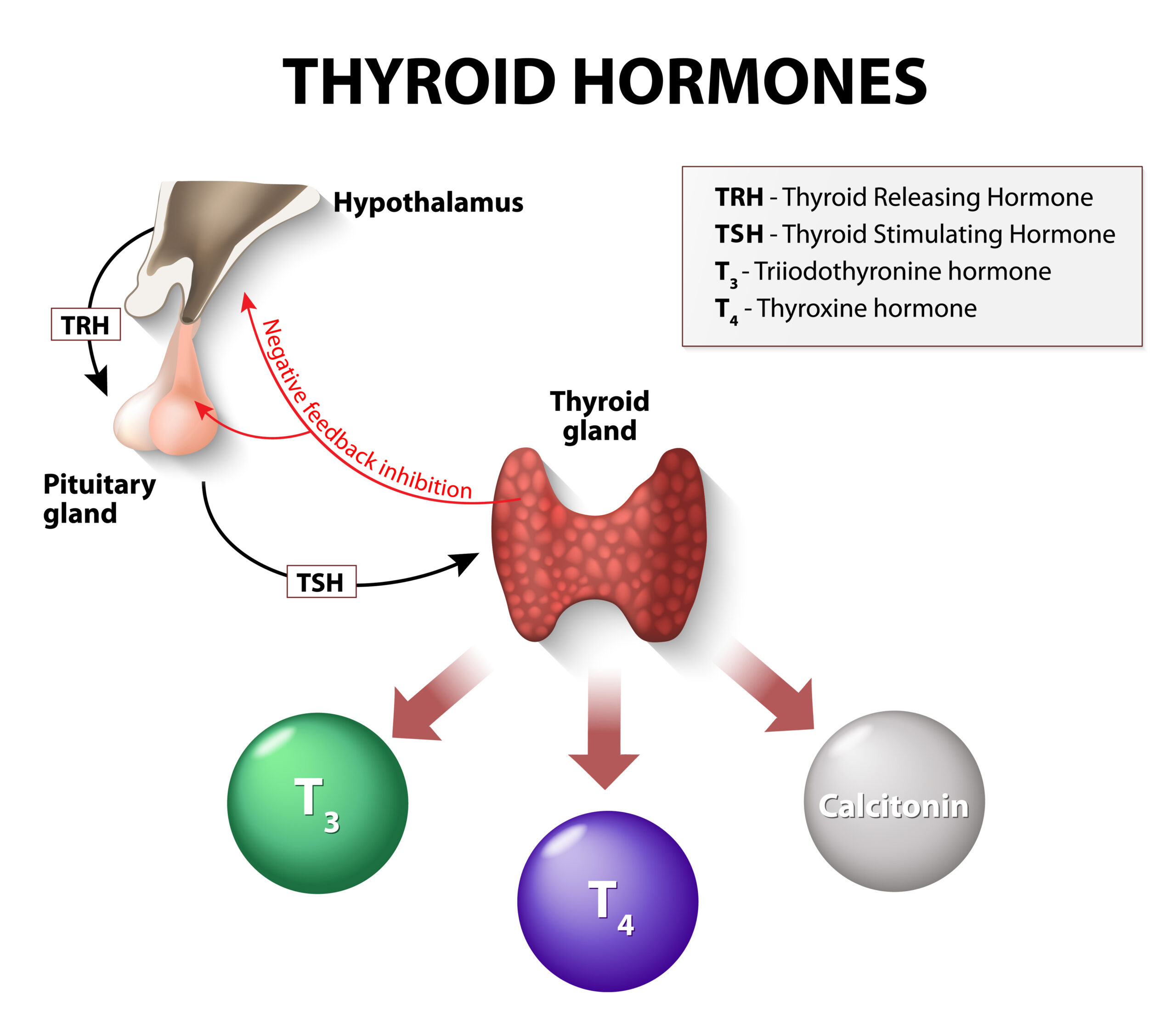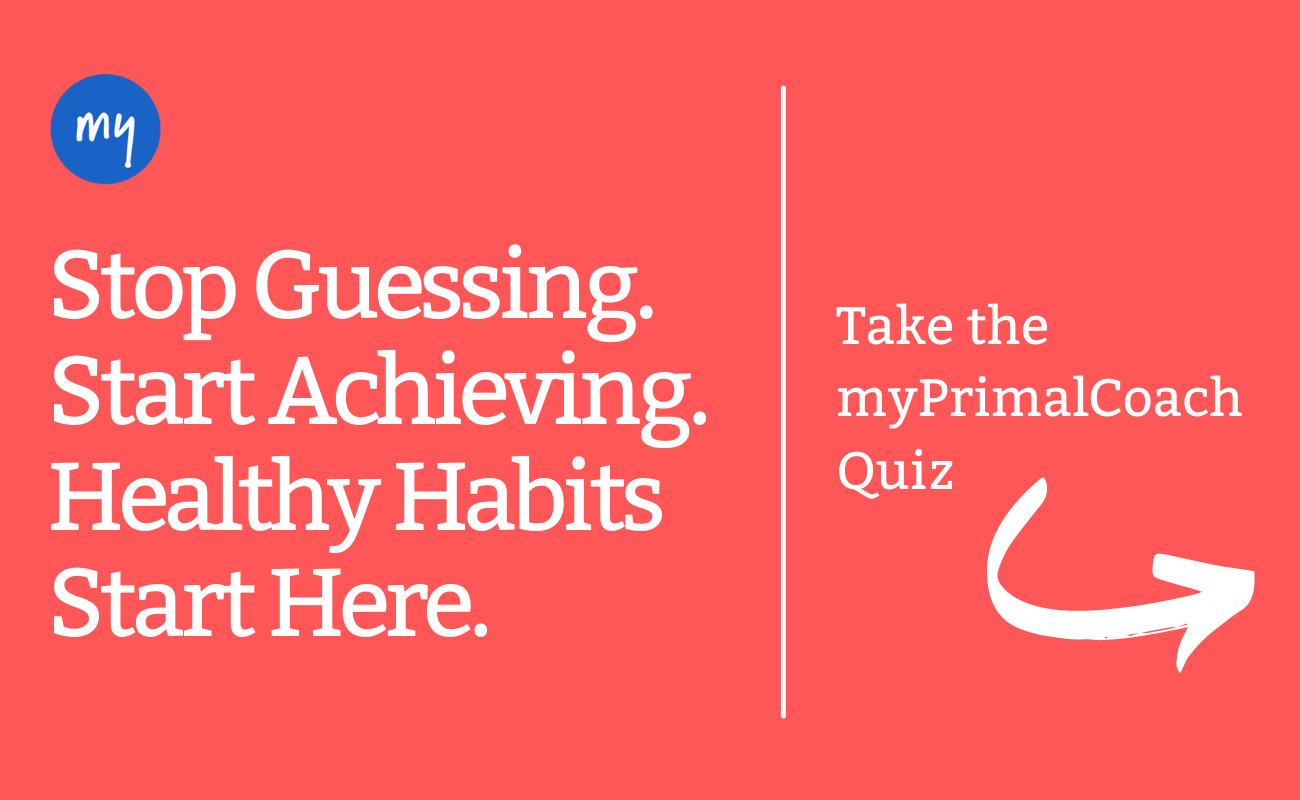If you’re concerned about your thyroid health or have known thyroid malfunction, you’ve probably wondered at some stage or another, are goitrogens harmful?
On the flip side, if you’ve never had any thyroid or health problems and find yourself with normal metabolic function, you may have never even heard of the word goitrogen.
Before we jump into what goitrogens are, where to find them, and whether or not they are harmful, it’s best to get an understanding of how the thyroid works and the connection between the two.

What Does the Thyroid Do?
The thyroid is a small, butterfly-shaped gland located on your neck just below the Adam’s apple. Its body sits at the base of your neck and its wings span on either side of your windpipe. The little gland has a big job of making and secreting important hormones. Its primary responsibility is to control your metabolism and how your body regulates energy. In other words, it regulates the rate at which your body converts the food you consume into energy and its role is necessary for every cell in your body to function properly.
The two hormones secreted by the thyroid gland are thyroxine, known as T4, and triiodothyronine, known as T3. The numbers assigned to each T represent the number of atoms of iodine they contain. In our cells, T4 is converted into T3 to be actively used.
Sometimes this production and secretion of the hormones can malfunction and lead to poor thyroid function, known as hyper- and hypothyroidism.

What is Hyperthyroidism?
If too much of the thyroid hormones are secreted it can lead to overactivity in your cells. This is known as an overactive thyroid, or hyperthyroidism. This occurs when too much T4 is being produced for your body to use accordingly. Common symptoms include:
- Heart palpitations
- Anxiety
- Goiter (thyroid gland enlargement)
- Weight loss
- Increased sweating
What is Hypothyroidism?
If too little T4 is produced, it’s known as an underactive thyroid, or hypothyroidism. This is the most common malfunction of the thyroid gland. The insufficient secretion of hormones causes your cells and body to slow down. Common symptoms include:
- Fatigue
- Weight gain
- Constipation
- Sensitivity to cold temperatures
- Hashimoto’s disease (autoimmune disease)
What Are Goitrogens?
Goitrogens are compounds and naturally-occurring chemicals found in many different foods. There are three primary types:
- Goitrins
- Thiocyanates
- Flavonoids
Goitrins and thiocyanates are produced when a plant food is sliced or chewed, or its structure is injured in some other way. Flavanoids are healthy antioxidants that are naturally present in several foods, and some may be converted into goitrogens in your gut.
There are also environmental goitrogens. These are endocrine disruptors and can be found in:
- Plastics
- Pesticides
- Heavy metals
- UV filters
- By-product of cigarette smoking
The vast majority of goitrogenic compounds are found in Brassica vegetables (also known as cruciferous vegetables). Though there are some additional dietary sources and plant-based foods that contain them.
Foods That Are High in Goitrogens
Cruciferous vegetables:
- Broccoli
- Cauliflower
- Cabbage
- Kale
- Brussels sprouts
- Mustard greens
- Horseradish
- Collard greens
- Turnips
- Spinach
- Kohlrabi
- Watercress
Other foods high in goitrogens:
- Starchy plants such as sweet potato, cassava, and turnips
- Corn
- Bamboo shoots
- Peanuts
- Pine nuts
- Peaches
- Pears
- Strawberries
Foods containing flavonoids which may be converted into goitrogens:
- Berries
- Red wine
- Teas (particularly green, white, and oolong varieties)
Studies show some soy-based foods may interfere with T4 absorption, including:
- Soy protein such as tofu and tempeh
- Edamame
- Soy milk
Effects of Goitrogens on the Thyroid
So what do dietary goitrogens have to do with your thyroid? Well, goitrogens and thyroid function go hand-in-hand. To put it simply, goitrogens have the potential to interfere with how your body uses iodine. If you recall, the numbers in the two hormones produced and secreted by the thyroid gland, T3 and T4, correspond to the number of iodine atoms present in them. Hence, consuming goitrogenic foods can interfere with the iodine uptake into these two important hormones and lead to poor thyroid function.
This iodine deficiency can lead to hypothyroidism. In addition, when your body recognizes T3 and T4 levels are low, the pituitary gland will signal to produce more thyroid stimulating hormone (TSH). If the thyroid is not able to keep up hormone production with the increased TSH levels, thyroid gland enlargement (known as a goiter) may occur. Goitrogens may also interfere with thyroid peroxidase (TPO) activity. TPO is an enzyme that aids in the production of thyroid hormones by attaching iodine to the amino acid tyrosine.
Are Goitrogens Harmful?
Only potentially if you have poor thyroid function, or an autoimmune thyroid disease such as Hashimoto’s thyroiditis, and take a thyroid medication and are monitoring your thyroid hormone levels. Goitrogens are found in many nutritious foods and part of a varied diet for optimal health. There is no need to remove them if you have normal thyroid function.
There are some things to keep in mind if you are dealing with thyroid dysfunction and looking to mitigate the effects of goitrogen on your thyroid. For starters, you can limit cruciferous vegetable intake and soy food as excessive intake may lead to inadequate hormone production. You can also opt for cooked cruciferous vegetables over eating them raw, as there’s evidence to show that the cooking process breaks down the compounds that stimulate goitrogenic activity. Think more borscht over a fresh cabbage coleslaw, and kale chips or sautéed spinach in lieu of a raw kale or fresh spinach salad.
You can also increase your selenium and iodine intake to counteract the effect of goitrogens. Seaweed, sunflower seeds, and brazil nuts are all excellent sources.
Summary
As always, consult with your healthcare professional for individualized medical advice as to whether or not goitrogens are harmful to you. If you’re concerned about goitrogens, a myPrimalCoach can aid with your thyroid journey by helping identify the goitrogenic potential of certain foods and lifestyle modifications to aid with any hypothyroid symptoms.

